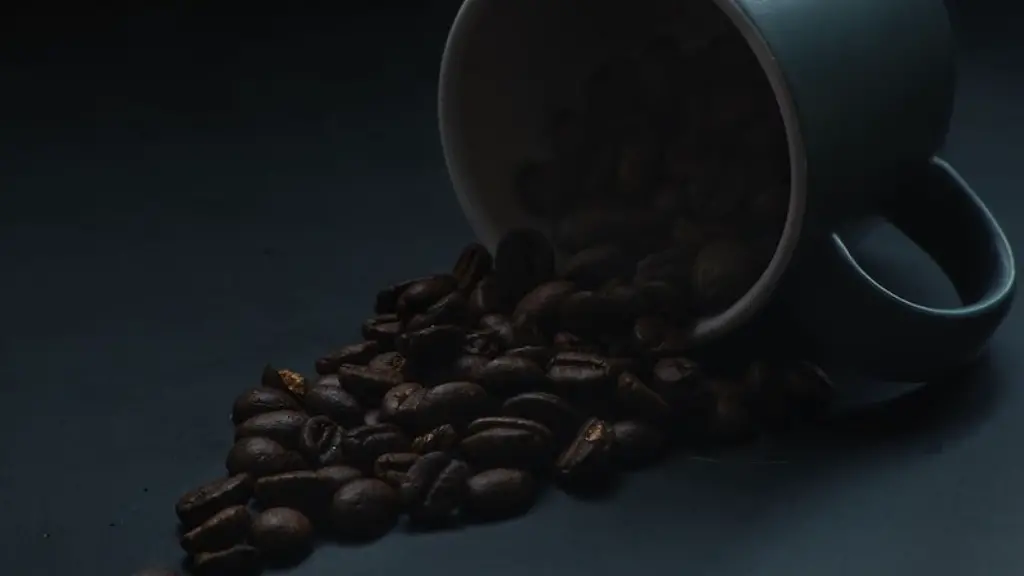Impact on Fertility
Caffeine is a widely used stimulant found naturally in coffee, tea, some soft drinks, energy drinks and chocolate. While it is generally safe to consume small amounts of caffeine in moderation, research has shown that large amounts of caffeine can have a negative effect on fertility. The reason behind this is because even a small amount of caffeine disturbs vital hormones that are essential for conception. Caffeine can also cause an increase in blood pressure and increased production of stress hormones, neither of which are beneficial when trying to conceive.
Despite the fact that caffeine can affect fertility, the research is still mixed. Some studies have found that a moderate amount of caffeine is safe for women wanting to conceive, while other research suggests that even moderate amounts may delay ovulation. For this reason, it is important for anyone trying to conceive to discuss their specific caffeine intake with their doctor.
The American Pregnancy Association recommends that women who are actively trying to conceive limit their caffeine intake to less than 200mg per day. This is equivalent to 1-2 cups of coffee, or 2-3 cans of soda. Some medical associations suggest that women trying to get pregnant may want to reduce their caffeine intake even further and switch to decaffeinated drinks to reduce the risk of any possible health impacts.
Impact on Pregnancy
Research has shown that if a woman is pregnant, caffeine intake could be a major factor in her health. Studies have linked high levels of caffeine consumption during pregnancy to potential long-term developmental outcomes in the baby. This can include childhood behavioral issues.
Previous research has suggested that caffeine can cross the placenta into the baby’s bloodstream, increasing the risk of miscarriages and stillbirth. Additionally, preterm labor and low-birth weight are other complications that can be associated with caffeine consumption during pregnancy.
Experts recommend that pregnant women limit their caffeine consumption to less than 200mg per day, as the body can only process small amounts at a time. The FDA does state that pregnant women should avoid more than 300mg of caffeine per day for the health of their baby.
Caffeine and Cravings
Caffeine is also linked to cravings when trying to conceive. A study conducted by the Harvard T.H. Chan School of Public Health found that women who consumed more than 500mg of caffeine per day were more likely to experience cravings. Cravings marked the transition from pre-pregnancy to early stages of pregnancy, suggesting that cravings could be linked to caffeine levels in the body.
While cravings are a normal part of pregnancy, they can be problematic if not addressed. If a woman is trying to conceive, it is important to monitor her caffeine intake to ensure it isn’t contributing to excessive cravings that could lead to unhealthy weight gain or other health issues.
Reducing the amount of caffeine in the diet can help to reduce cravings and make it easier to maintain a healthy, balanced diet while trying to conceive. There are also some medical treatments available to help reduce cravings, such as behavioral changes and medications. These should be discussed with a doctor prior to taking any action.
Caffeinated Drinks as Replacement for Water
When trying to conceive, it is important to maintain a healthy diet and a regular exercise routine. Hydration is also essential for this process, and it is recommended that a woman should drink 6-8 glasses of water per day. While some women may choose to replace water with a caffeinated beverage, this can be an unhealthy choice. Caffeine-containing beverages can be dehydrating, as well as having other negative effects.
In addition to caffeine, certain drinks may also contain sugar and other additives that can contribute to weight gain. This can be problematic when trying to conceive, as being overweight can affect a woman’s fertility. It is important to drink plenty of water and limit intake of caffeinated and sugar-filled beverages when attempting to conceive, as these drinks are not suitable replacements for water.
Managing Coffee Intake when Trying to Conceive
When attempting to conceive, it is important to limit caffeine intake, as research suggests that excessive caffeine can have a negative effect on fertility. It is also important to ensure that caffeine intake is limited during pregnancy, as this can impact the health of the baby. Additionally, cravings can be associated with caffeine intake, so it is important to monitor caffeine intake to ensure cravings are kept under control. Finally, it is important for women to drink plenty of water when trying to conceive, as water is the best replacement for caffeinated beverages.
Caffeine and Sperm Quality
Studies have suggested that caffeine consumption may be linked to a decrease in sperm motility and quality. Caffeine can have an impact on the production of sperm, and an accumulation of caffeine can be toxic to the male reproductive system.
For this reason, it is important for men who are trying to conceive to monitor their caffeine intake and to ensure they are drinking plenty of water to flush out any accumulated caffeine in the body. Drinking large amounts of caffeine can also cause other health issues, such as increased heart rate and increased blood pressure, so it should be avoided when attempting to conceive.
Caffeine Alternatives
If a woman is trying to reduce her caffeine intake, there are alternatives to coffee and tea that can provide a source of energy without the risk of negative side effects. Some options include decaffeinated coffee and tea, herbal teas, and sparkling water with fruit juice.
It is also important to note that caffeine is not only found in beverages, but also in certain over-the-counter medications, such as painkillers and cold medicine. It is important to read the labels of any medications to check for caffeine content, and to avoid these medications if possible. Instead, speak with a doctor or pharmacist about alternative medications without caffeine.
Caffeine Levels in Food and other Sources
Caffeine is present in many food sources, such as chocolate, energy drinks, and energy bars. It is also important to note that caffeine can be present in foods that are not traditionally thought of as caffeinated. For example, some breakfast cereals, some gluten-free foods, and some instant soups can contain a small amount of caffeine, as well as some energy drinks, and even some natural supplements. It is important to read the labels of any food or supplements to check for caffeine content.
Additionally, caffeine can also be found in other sources, such as some medications, beauty products, and even certain herbal supplements. Again, it is important to read the labels of any products to check for caffeine content, and to avoid these products if possible.
Conclusion
Overall, it is important for anyone trying to conceive to be aware of the potential negative side effects of caffeine and to monitor their caffeine intake. Caffeine can disrupt vital hormones and can interfere with fertility, as well as having an impact on cravings and the health of the baby if the woman is pregnant. Limiting caffeine intake is important for those trying to conceive, as well as drinking plenty of water and avoiding caffeine-based replacements for water. Being aware of all sources of caffeine, such as medications and beauty products, is also important for those trying to conceive. The exact caffeine intake should also be discussed with a doctor to ensure it is appropriate for the individual.




